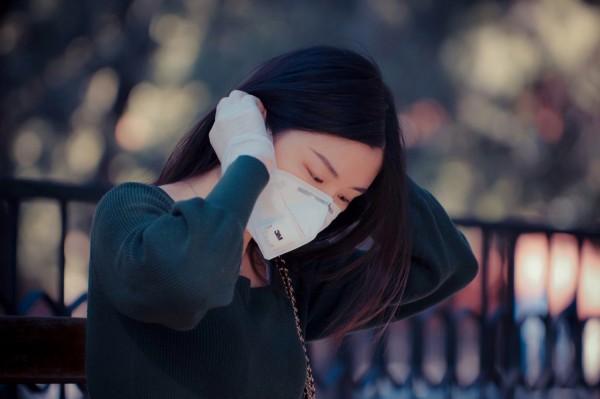Is It a HIPAA Violation If You Are Asked Why You Are Not Wearing a Face Mask?

Entering an establishment ‘maskless,’ and if a person wonders and asks why you’re not wearing a mask, is not a violation of HIPAA.
The Health Insurance Portability and Accountability Act, the law also known as HIPAA, is misunderstood by amny.
Based on recent reports, the people who misunderstand it are typically the 'anti-maskers' who claim that it is unlawful to ask them why they are not wearing a face mask or shield.
Experts explained that this is not how the law works. According to HIPAA, patients may access their health records. That access includes covered entities like the hospital or health insurance firm not allowed to share health records without the patients' consent.
Essentially, employers, schools, law enforcement agencies and random people in public are not bound by this health care regulation.
For instance, an individual finds out something about his relative's health condition, and he tells about it to another family member without consent, it's not considered a HIPAA violation.
Being 'Maskless' Not a HIPAA Violation
Have you experienced entering an establishment "maskless" and a person wonders and asks you why you're not wearing a mask? Always remember, it's not a violation of HIPAA to ask.
There is nothing specified within HIPAA about needed to answer and how to answer if ever someone asks you. As this is a medical records law, it is not relevant to any conversation about wearing and not wearing a mask.
In fact, according to those knowledgeable about the law, if a person asks to enter a store without a mask on, as accommodation for a disability, people there may ask the person requesting for documentation of his disability.
And, in this said scenario, HIPAA has nothing to do with it. Instead, the American with Disabilities Act or ADA applies.
A lot of people go through actual medical conditions or disabilities. That is why it is becoming much more difficult for them to put a mask on.
These conditions, according to ADA, may include problems such as severe asthma that comes with autism.
DON'T MISS THIS: Gloves Might Not Be Protecting You From COVID-19
What is the ADA?
It was in 1990 when the ADA became law. It is a civil rights legislation, prohibiting discrimination against people who have disabilities in all areas of public life, which includes transportation, schools, jobs, and all private and public places open to the general public.
The main objective of this law is to guarantee that people with disabilities get the same rights and opportunities as other people are getting.
Specifically, ADA provides civil rights protections to people with disabilities similar to those offered to other people on the bases of gender, nationality, age, color, religion, and race.
It guarantees fair opportunity as well, for people who have disabilities, as mentioned, in public accommodations, transportation, employment, telecommunications, and local and state government services.
Examples of public accommodations would include privately-owned, leased or operated businesses such as doctor's offices, restaurants, hotels, private schools, grocery stores, and movie theaters, among others.
With the information about the two regulations, it is important that one should not hassle others who he believes to have health conditions, or who he believes could be making up a condition.
Many disabled individuals have had enough of other people questioning their status, and their feeling is quite understandable.
IN CASE YOU MISSED THIS: Britain Wins Rare Compliment for Its Leadership in the Race for Life-Saving COVID-19 Drug Test
Jul 28, 2020 06:00 AM EDT





